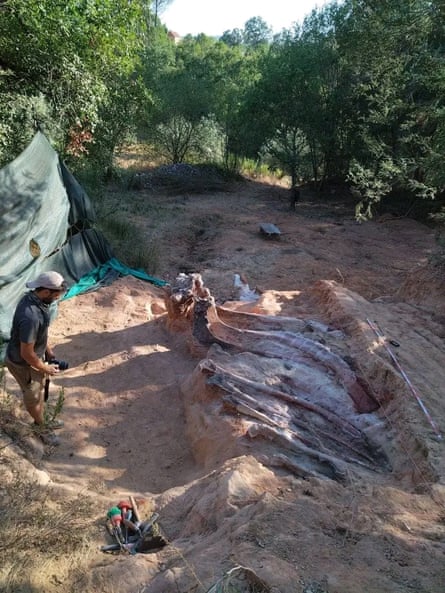[ad_1]
The stays of what might be the biggest dinosaur ever present in Europe have been uncovered in a again backyard in Portugal.
Excavation work started within the backyard within the metropolis of Pombal in 2017, when the proprietor of the property observed fragments of fossilised bone and contacted researchers from the College of Lisbon.
Earlier this month, Spanish and Portuguese palaeontologists working on the web site started unearthing the vertebrae and ribs of what they assume is a brachiosaurid sauropod.
Sauropods had been the most important of all dinosaurs and the biggest land animals ever to have lived.
“It’s not normal to seek out all of the ribs of an animal like this, not to mention on this place, sustaining their authentic anatomical place,” Elisabete Malafaia, post-doctoral researcher on the School of Sciences of the College of Lisbon, informed the Phys.org web site.

The sauropod group – which incorporates the brontosaurus and diplodocus – had been herbivores, had lengthy necks and walked on 4 legs.
The scale of the bones discovered within the backyard means that the dinosaur was 12 metres excessive and 25 metres lengthy.
Due to the pure place that the skeleton was present in, researchers are hopeful that additional excavation could uncover extra elements of the identical dinosaur.
The skeleton was present in Higher Jurassic sedimentary rocks, suggesting it’s about 150m years previous.
“[This discovery] confirms that the area of Pombal has an vital fossil report of Late Jurassic vertebrates, which within the final many years has supplied the invention of ample supplies very important for the information of the continental faunas that inhabited the Iberian Peninsula at about 145m years in the past,” Malafaia added.
[ad_2]